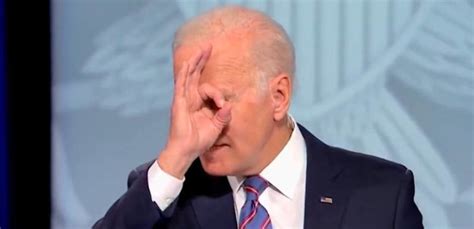Opinion by Isabelle Morales
The Biden administration may soon decide to cancel $10,000 in student loan debt for borrowers.
This proposal is another sign that the administration is deeply out of touch. It is an unfair handout that would cost an immense amount of money, drive inflation, and benefit affluent elites over low- and middle-class families. The American people need relief, not policies that will worsen their already-abysmal conditions to line the pockets of the liberal elite.
The existing Biden administration moratorium on student loan repayments, which has been extended numerous times, has already cost taxpayers $130 billion. Canceling $10,000 in debt for each borrower would cost a whopping $373 billion.
The national debt and federal spending are already out of control. In 2020, the U.S. government spent over $6 trillion, while in 2021, the U.S. spent $6.82 trillion, or 30 percent of the economy. The U.S. now holds about $243,000 of debt per taxpayer and the Congressional Budget Office projects that U.S. interest costs will triple within the next decade, accounting for 12 percent of the entire federal budget.
In 2021, U.S. interest payments on its debt alone cost roughly $2,600 per household.
Democrats argue that the massive cost of canceling student loan debt doesn’t matter because it would stimulate the economy by giving borrowers more money to spend.
In reality, this plan would cost the government far more than it would provide stimulus. The Committee for a Responsible Federal Budget conducted an analysis finding that for every dollar the government would spend on student loan forgiveness, as little as 3 cents and at most 27 cents of economic activity would be produced.
This reckless spending will inevitably make inflation even worse than it already is.
The federal government is flooding the economy with so much money that demand is growing too fast for production to keep up. In May, inflation hit another 40-year high at 8.6 percent. Inflation is now costing American households an extra $460 a month.
Low-income households are disproportionately harmed by inflation. This is because low-income Americans spend a much higher percentage of their income on basic goods. Under high inflation, higher-income households cut back on luxury goods, while low-income households can’t cut out much of their spending, as their spending is primarily on necessities like housing and groceries. High-income households can “stock up” on these goods while prices are cheap.
Not only would this policy hurt low-income Americans by exacerbating inflation, but it would also be fundamentally unfair to them. Many low-income Americans do not have significant student loan debt because they decided not to go to college or took a cheaper route via community college due to the high cost of tuition.
Millions of Americans served in the military to receive free education, worked long hours to put themselves through school instead of going into debt, or were proactive in paying off their debt. All these sacrifices were made by people who could only work with the information they had: if they took out loans, they would be held to their contractual obligations.
Not only were these Americans deprived of a certain amount of upward mobility that comes with high education, but now they’re being told that their sacrifices were futile.
Who benefits, then? Primarily, the elite.
The Brookings Institution described those who would benefit most from student debt forgiveness as “higher income, better educated, and more likely to be white.” The top 20 percent of households currently hold $3 in student loan debt for every $1 of debt held by the bottom 20 percent of earners. About 75 percent of student loan repayments come from the top 40 percent of earners.
Even after spending billions to cancel debt and deeply harming the economy in the process, this policy may actually worsen the student loan crisis for future generations. For starters, the primary driver of high tuition prices has been the federal government’s subsidization of college. If the government decides to further subsidize education costs, this will motivate colleges and universities to charge students even more in tuition.
Further, canceling student debt will signal to future borrowers that their debt, too, will be canceled at some point. College students will be incentivized to take on as much debt as they wish, as they expect no consequences.
Existing borrowers with remaining balances may stop making payments in hopes that more of their debt will be canceled in the future. This would be radically unsustainable.
Americans are worried about how they’re going to afford their next meal and transportation to and from work. A handout to wealthy elites should be completely off the table, especially when those handouts come at the expense of those suffering under surging prices. This policy is a slap in the face to working families.


Again what is his agenda? Raising inflation on every American to erase some debt of a few hundred thousand? This is insane and completely corrupt! Wake up America…